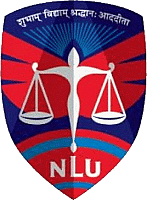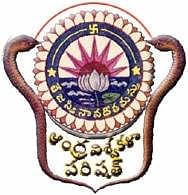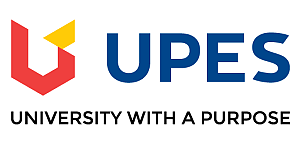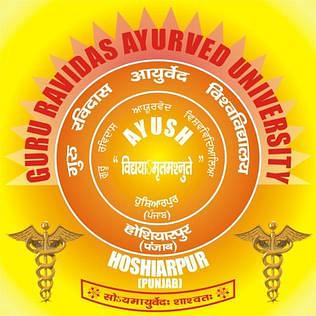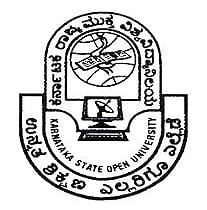Introduction
The admission process at Delhi University (DU) is always one of the most anticipated events for thousands of students aspiring to pursue a higher education in the capital India. However, over the years, competition for places at UD has become increasingly fierce, making it increasingly difficult for students to secure a place in their favorite courses. In an effort to address this issue and level the playing field for all applicants, Chhatra Yuva Sangharsh Samiti (CYSS) has voiced its request for separate cut-offs for admission to Delhi University under the Entrance Test. Common to University (CUET). This article dives into the details of the CYSS application and the potential impact it can have on the college admissions process.

Delhi University
Learn about the current admissions process: Traditionally, the University of Delhi admissions process is based on a point cut-off based on the results of the class 12 board exam. Students who wish to gain admission into various undergraduate courses must meet the criteria specified by each university. The admission process, while straightforward, often led to high cut-off percentages, favoring those with exceptional board exam scores and leaving many deserving candidates behind.
For Admission Inquiry Call/WhatsApp +91 9917698000
Introduction of Common Undergraduate Entrance Test (CUET) at Delhi University
In recent years, the Delhi University administration proposed the introduction of the Common Undergraduate Entrance Test (CUET) to streamline the admission process. The CUET aimed to provide a more comprehensive evaluation of students' skills and knowledge beyond board exam scores. By adopting this approach, the university sought to reduce the overemphasis on board exam results and offer a fairer opportunity to all applicants, irrespective of their educational backgrounds.
CYSS's Demand for Separate Cut-off Marks at Delhi University
The Chhatra Yuva Sangharsh Samiti (CYSS), a prominent student organization, has been at the forefront of advocating for students' rights and welfare. They have recently demanded the implementation of separate cut-off marks for Delhi University admission under the CUET. Their rationale behind this demand lies in the belief that board exam scores may not accurately reflect a student's true potential, and using a single cut-off for all applicants could be unjust to those from different educational backgrounds.
The Need for Equitable Representation at Delhi University
CYSS argues that students from state boards, central boards, and international boards undergo varying levels of difficulty and evaluation standards. This results in an uneven playing field when using a single AU admission threshold, as some students may experience challenges that are not reflected in their board test scores. By implementing separate thresholds, CYSS aims to ensure fair representation of all registrants and eliminate inherent disadvantages faced by certain groups of students.
Resolving socioeconomic disparities at Delhi University
Another important aspect of applying for CYSS is addressing socioeconomic disparities among applicants. Students from economically disadvantaged backgrounds often have a harder time getting high scores on exams due to limited resources and support. With clear cut-off points, DU can create a more inclusive admissions process, provide equal opportunities for students from all backgrounds, and promote diversity on campus.
Finding a balance: Panel assessment of the entrance test report: Although the CYSS requirement for separate cut-off points has its merits, it also poses questions about the relevance and importance of board exams in the admissions process. Board exams have been a cornerstone of student achievement for decades, and they serve as the benchmark for higher education institutions across the country. It is essential to strike a balance between board exams and entrance exams to ensure a comprehensive assessment of students' abilities.
Implementation challenges at Delhi University
Implementing differentiators in the CUET system poses certain challenges. First, it requires close coordination between the Delhi University administration and the various school boards to establish a fair and standard review process for the various boards. Second, it is important to ensure that the entrance test is comprehensive enough to assess students from a variety of backgrounds without undue bias. Addressing these challenges will be key to the system's success.
Public and government response at Delhi University
CYSS request for a private limited rating received mixed reactions from the public, students and education professionals. While some debate the proposal, citing the need for a fairer admissions process, others worry about potential administrative complications and undermining the merits of council assessments, board of directors. The government's response to this request is crucial, as it will shape the future of admissions at AU and potentially influence the admissions processes of other universities.
Conclusion on Delhi University
CYSS Separate Application for Cuts - Weaknesses in admission to Delhi University under Common College Entrance Examination (CUET) highlights growing need for process fair and inclusive enrollment process. Although the current system of board exam results has been in place for many years, it may not accurately reflect a student's true potential or account for socioeconomic disparities. Implementing separate thresholds could address these issues and provide a fairer opportunity for all applicants, ensuring that deserving students from diverse educational backgrounds have access to Equal access to quality education at the University of Delhi. However, striking a balance between the jury assessments and entrance tests and addressing implementation challenges will be critical to the success of this proposal. As the debate continues, it is essential that all stakeholders engage in constructive dialogue to shape a stronger and more inclusive admissions process for one of the prestigious universities most famous in India.
For Admission Inquiry Call/WhatsApp +91 9917698000







